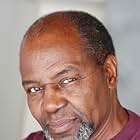After a young woman realizes that she can use her dreams to alter her life by changing events that took place in childhood, she winds up in the clutches of the CIA, who use her to prevent nu... Read allAfter a young woman realizes that she can use her dreams to alter her life by changing events that took place in childhood, she winds up in the clutches of the CIA, who use her to prevent nuclear disaster.After a young woman realizes that she can use her dreams to alter her life by changing events that took place in childhood, she winds up in the clutches of the CIA, who use her to prevent nuclear disaster.
- Director
- Writers
- Stars
Robert Benedetti
- Ben Collins
- (as Robert L. Benedetti)
- Director
- Writers
- All cast & crew
- Production, box office & more at IMDbPro
Storyline
Did you know
- TriviaThe 2nd part of this episode about nuclear war contains an early version of the rousing music score that would later be used in Peter Jackson's "The Lord of the Rings." Coincidentally, Jackson had written a script for "A Nightmare on Elm Street 6: Dream Lover" that wasn't picked up. New Line Cinema was behind both the NoES & LotR movies.
- ConnectionsFeatures Gumby Adventures (1988)
Featured review
In the twelfth episode of Freddy's Nightmares titled "The End of the World," the series takes a different narrative approach, intertwining dreams with real-life consequences in a tale that explores the power of altering events and the complex repercussions of such actions. Directed by the writer of "The Last Starfighter," this episode delves into the concept of changing one's past through dreams, resulting in a mix of intrigue, psychological tension, and a touch of government conspiracy.
The episode centers around Amy (portrayed by Mary Kohnert, known for her appearance on "Star Trek: The Next Generation"), a young woman who starts experiencing peculiar dreams that revolve around a traumatic childhood event: the accidental death of her mother. As Amy delves deeper into her dreams, she discovers that her father's version of events was a lie, and she was indeed responsible for her mother's death. However, she also uncovers a remarkable ability-her dreams have the power to alter the course of past events.
In the first half of the episode, Amy embarks on a mission to save her mother's life by changing the past through her dreams. This premise offers a refreshing departure from the series' usual themes, presenting a protagonist who actively seeks to reshape her history. Despite the somewhat predictable twist regarding the consequences of her actions, the narrative keeps viewers engaged as Amy navigates the complexities of rewriting her past and confronting the unintended repercussions of her choices. This segment showcases the potential of dreams as a medium for change and explores the moral dilemmas tied to altering reality.
The second half of the episode shifts gears, as Amy's newfound power attracts the attention of the CIA. They recognize the potential of her dream-altering abilities and exploit her talents to prevent a nuclear disaster. This portion introduces an element of government conspiracy, adding layers of intrigue and suspense to the plot. However, this shift also marks a departure from the initially personal and introspective storyline, veering into a more action-oriented narrative. While the concept of using dreams to avert a global catastrophe is intriguing, the execution feels somewhat disjointed compared to the more character-driven first half.
As the episode unfolds, Amy's experiences with both her dreams and the CIA's intervention lead her to confront the consequences of her actions on a grander scale. Themes of power, responsibility, and unintended outcomes take center stage, creating a moral dilemma that resonates beyond the individual.
Overall, "The End of the World" showcases an innovative narrative approach within the Freddy's Nightmares series. The exploration of dreams as a means to rewrite history adds a layer of depth to the typical dream-centric themes of the show. While the episode excels in the initial portrayal of Amy's personal journey, the transition to a government conspiracy plot in the second half feels less cohesive. Despite this shift, the episode effectively examines the moral implications of altering reality and the interconnectedness of actions and consequences. The inclusion of psychological tension, government intrigue, and moral dilemmas makes "The End of the World" a notable entry that expands the series' thematic boundaries while maintaining its signature blend of horror and surrealism.
The episode centers around Amy (portrayed by Mary Kohnert, known for her appearance on "Star Trek: The Next Generation"), a young woman who starts experiencing peculiar dreams that revolve around a traumatic childhood event: the accidental death of her mother. As Amy delves deeper into her dreams, she discovers that her father's version of events was a lie, and she was indeed responsible for her mother's death. However, she also uncovers a remarkable ability-her dreams have the power to alter the course of past events.
In the first half of the episode, Amy embarks on a mission to save her mother's life by changing the past through her dreams. This premise offers a refreshing departure from the series' usual themes, presenting a protagonist who actively seeks to reshape her history. Despite the somewhat predictable twist regarding the consequences of her actions, the narrative keeps viewers engaged as Amy navigates the complexities of rewriting her past and confronting the unintended repercussions of her choices. This segment showcases the potential of dreams as a medium for change and explores the moral dilemmas tied to altering reality.
The second half of the episode shifts gears, as Amy's newfound power attracts the attention of the CIA. They recognize the potential of her dream-altering abilities and exploit her talents to prevent a nuclear disaster. This portion introduces an element of government conspiracy, adding layers of intrigue and suspense to the plot. However, this shift also marks a departure from the initially personal and introspective storyline, veering into a more action-oriented narrative. While the concept of using dreams to avert a global catastrophe is intriguing, the execution feels somewhat disjointed compared to the more character-driven first half.
As the episode unfolds, Amy's experiences with both her dreams and the CIA's intervention lead her to confront the consequences of her actions on a grander scale. Themes of power, responsibility, and unintended outcomes take center stage, creating a moral dilemma that resonates beyond the individual.
Overall, "The End of the World" showcases an innovative narrative approach within the Freddy's Nightmares series. The exploration of dreams as a means to rewrite history adds a layer of depth to the typical dream-centric themes of the show. While the episode excels in the initial portrayal of Amy's personal journey, the transition to a government conspiracy plot in the second half feels less cohesive. Despite this shift, the episode effectively examines the moral implications of altering reality and the interconnectedness of actions and consequences. The inclusion of psychological tension, government intrigue, and moral dilemmas makes "The End of the World" a notable entry that expands the series' thematic boundaries while maintaining its signature blend of horror and surrealism.
- BeefyBoyGod
- Aug 10, 2023
- Permalink
Details
- Release date
- Country of origin
- Language
- See more company credits at IMDbPro
Contribute to this page
Suggest an edit or add missing content














